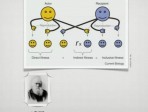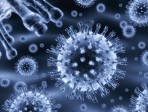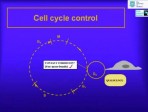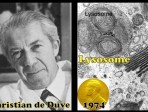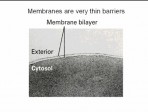 00:29:00
00:29:00
John Cornforth
Video of John 'Kappa' Cornforth who was born in Australia, and has been profoundly deaf since his teens. He moved into the field of organic chemistry at Sydney University where he met his wife Rita. Together they moved to Oxford and had a profound in....
More details | Watch now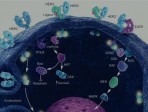 00:08:00
00:08:00
Lapatinib treatment for HER2 Positive Breast Cancer
Discussion on the background information, etiology, and treatment of HER2 positive breast cancer.
More details | Watch now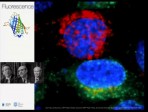 00:25:00
00:25:00
Lighting up cells
A presentation about fluorescing cells by a Senior Lecturer in Bionanotechnology in the Department of Biomedical Science at the University of Sheffield
More details | Watch now 01:13:00
01:13:00
Magnetic brain stimulation and brain function?
Like his nineteenth century contemporaries David Ferrier tried to reveal cerebral localisation of function by direct electrical stimulation of the exposed brain of animals. With some notable exceptions the results were disappointing and confined to t....
More details | Watch now 00:01:00
00:01:00
Making bacteria glow to aid healing
 01:17:00
01:17:00
Mammalian biodiversity: past, present, future?
Beautiful and charismatic, mammals are biodiversity icons. But a quarter of mammalian species are now threatened with extinction, as ecosystems reel under the impact of a growing and ever more demanding human population. This lecture explores the his....
More details | Watch now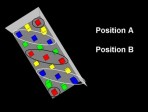 01:01:00
01:01:00
Mapping memory: the brains behind remembering
Historically memory research has focussed on the hippocampus, a structure deep in the brain's temporal lobes. Damage to the hippocampus is known to have a devastating impact on the ability to form new memories as well as compromising recollection of ....
More details | Watch now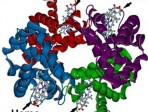 00:47:00
00:47:00
Max Perutz Interview – 1
Max Perutz discovered the structure of Haemoglobin (Nobel Prize 1962), and was the founder of the Laboratory for Molecular Biology in Cambridge, the birthplace of modern molecular biology. This interview shows his approach to science and his achievem....
More details | Watch now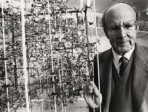 00:52:00
00:52:00
Max Perutz Interview – 2
The concluding part of an interview with the 1962 Nobel Laureate in Chemistry.
More details | Watch now 00:03:00
00:03:00
Microfluidic Biosensor
University of Toronto student Jonathan Yam describes his research on microfluidics during Summer 2010 in the laboratory of Bob Westervelt at Harvard University under the direction of Alex Nemiroski.
More details | Watch now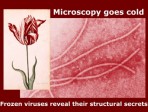 01:05:00
01:05:00
Microscopy goes cold: secrets of frozen viruses
Viruses are a major cause of death and disease. Too small to be seen by light microscopy, they were first visualised about 50 years ago by electron microscopy. Dr. Crowther describes his work on the development of the methods and illustrates how he h....
More details | Watch now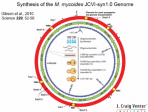 00:31:00
00:31:00
Minimizing a Bacterial Genome by Global Design and Synthesis
In 2010, we chemically synthesized the 1078 Kb Mycoplasma mycoides genome and transplanted it into a recipient cell cytoplasm to create a 'synthetic cell', JCVI-syn1.0 (Science, 329, 52-56, 2010). We identified several hundred non-essential genes by ....
More details | Watch now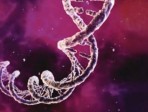 00:11:00
00:11:00
Mitochondrial DNA Testing
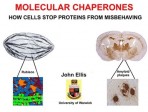 01:04:00
01:04:00
Molecular chaperones: how cells stop proteins from misbehaving
Proteins are the action molecules of all cells, and to function properly, protein chains must fold and assemble correctly. But each chain of every protein runs the risk that it will combine with one or more identical chains to form nonfunctional aggr....
More details | Watch now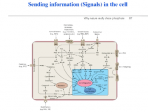 00:31:00
00:31:00
Multiscale Simulations of the Functions of Biological Molecules
Despite enormous advances in structural studies of biological systems we are frequently left without a clear structure-function correlation and cannot fully describe how different systems actually work. This introduces a major challenge for computer....
More details | Watch now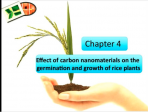 00:47:00
00:47:00
Nanomaterials as growth effectors and imaging agents in rice plants and its scope in plant science
Ramya talks about the ways in which nanomaterials can affect rice-plant growth and also be used for imaging purposes. This talk was part of her PhD thesis defence.
More details | Watch now 01:04:00
01:04:00
Nature’s glass: half-full or half-empty?
Andrew Balmford FRS is Professor of Conservation Science at University of Cambridge. The world’s governments failed to meet their pledge of reducing the rate of biodiversity loss by 2010. Wild populations, their habitats, and the benefits they pr....
More details | Watch now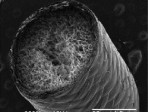 00:02:00
00:02:00
Nerve tissue engineering
Research staff explain how they are developing nerve guidance channels for repairing peripheral nerve injury
More details | Watch now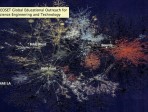 00:31:00
00:31:00
Networks in ecosystems and financial systems
This talk surveys our growing understanding of the relationships between the network structure of ecological networks ? both in mathematical models and in the real world ? and their ability to withstand disturbance, natural or human-created.
More details | Watch now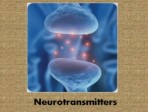 00:12:00
00:12:00
Neurochemistry
A presentation on neurochemistry - the effects of drugs and nutrition are also discussed.
More details | Watch now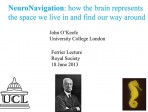 01:02:00
01:02:00
NeuroNavigation: how the brain represents the space we live in and finds our way around
Learning about new environments or locating ourselves in familiar environments are some of the most fundamental tasks that the brain performs. Information is not stored in response to biological needs such as hunger or thirst but on the basis of cogn....
More details | Watch now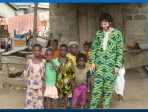 00:07:00
00:07:00
Nigeria
A short presentation discussing the economic disadvantages that Nigerians face and one possible method of attempting to alleviate them. Thomas Rush suggests the use of education to help promote an improved quality of life for the citizens outside of ....
More details | Watch now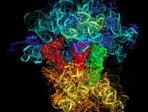 00:07:00
00:07:00
Nobel Laureate Venki Ramakrishnan
Venki Ramakrishnan was awarded the 2009 Nobel Prize in Chemistry for 'studies of the structure and function of the ribosome', the cell's protein-making factory. In this interview, he talks about his surprise at winning the prize, and what it meant to....
More details | Watch now 01:08:00
01:08:00
Nobel Lives
An audience with Nobel prize winners John Sulston FRS and Sydney Brenner FRS, who talk to Sarah Montague of BBC Radio 4's Today Programme, about their lives in science and their visions for the future.
More details | Watch now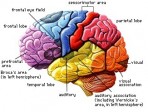 00:59:00
00:59:00
Nuts and Bolts of the Mind
Susan Greenfield conducts us on an exhilarating tour of brain. A brief fascinating historical introduction is followed by a discussion on our present, admittedly limited, understanding of this amazing organ. Members of the group handle (and dissect) ....
More details | Watch now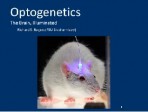 00:07:00
00:07:00
Optogenetics
Richard Rogers, undergraduate at Florida State University, explains some of the exciting and novel research he has taken part in.
More details | Watch now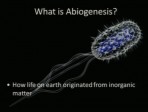 00:10:00
00:10:00
Origin of Life on Earth: Abiogenesis
This presentation portrays a general overview of the theory of abiogenesis and its conceptual history. From the theory of spontaneous generation to biogenesis to the modern-day abiogenesis, the changing perception of the origin of life is discussed.....
More details | Watch now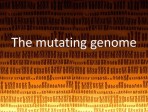 01:06:00
01:06:00
Our genomes, our history
Genetic differences between humans reflect the fundamental processes, such as mutation, recombination and natural selection, which have influenced our evolutionary history. Now that we can chart the genomes of many individuals, we are finding many su....
More details | Watch now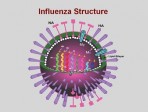 01:05:00
01:05:00
Pandemic Influenza: one flu over the cuckoo’s nest
Where do the pandemic influenza viruses come from and why did experts fail to predict the severity of the 2009 pandemic? However to date, the 2009 H1N1 pandemic influenza has been much less severe than the 1918 Spanish influenza.
More details | Watch now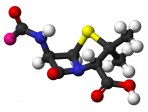 00:08:00
00:08:00
Penicillin – the Life Saver
Real-life story about one of the first uses of penicillin. An interview with a survivor.
More details | Watch now 01:08:00
01:08:00
Perception, deception and reality
Sir David Attenborough delivers the 2003 Michael Faraday Lecture entitled: Perception, deception and reality
More details | Watch now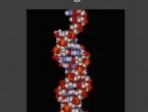 00:08:00
00:08:00
Pharmaco-genomics
This is a brief presentation discussing the emerging field of pharmaco-genomics. It explains how understanding the human genome can lead to better drug therapy in the future including tailor-made drugs for individuals.
More details | Watch now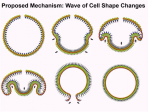 00:25:00
00:25:00
Physical perspective on cytoplasmic streaming
Professor Ray Goldstein FRS is the Schlumberger Professor of Complex Physical Systems at the University of Cambridge. Here he describes a biological example of topological inversion, with relevance to engineering problems in human technology.
More details | Watch now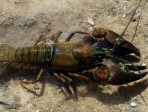 00:14:00
00:14:00
Plague-carrying crayfish
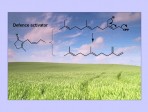 01:08:00
01:08:00
Plant and animal communication
Organisms of all kinds use signals comprising minute amounts of natural chemicals. The exploitation of semiochemicals is demonstrated with dramatic success in the management of pests and parasitic weeds in resource-poor East African cereal farming.
More details | Watch now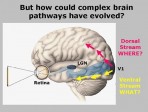 01:00:00
01:00:00
Plasticity of the brain: the key to human development.
How do our genes program the complexity of our brains? Why is human culture so much richer than that of the Great Apes? And how has human cognitive achievement continued to accelerate, when our genetic makeup has changed very little over the past 100....
More details | Watch now 00:08:00
00:08:00
Platypus Genome
The duck-billed platypus is a truly unique animal; a monotreme with almost no close relatives alive on earth. Scientists just had to take a look at that genome and here they discuss their findings.
More details | Watch now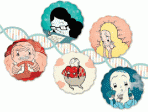 00:29:00
00:29:00
Predicting Personality
To what extent is our personality dictated by our genetic makeup? Groundbreaking new research in the fields of genetics and MRI Scanning are only now making it possible to tackle these questions, and the results are sometimes surprising. What makes u....
More details | Watch now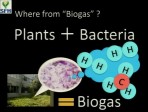 00:10:00
00:10:00
Producing Biogas and Identifying Bacteria
Bacteria which adhere to plants have ability to produce gases such as hydrogen, methane or ammonia. These are called biogas. Biogas is recognized as new and clean source of energy. I wanted to know what kind of bacteria produce biogas. I isolated bac....
More details | Watch now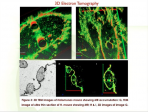 00:56:00
00:56:00
Prospects of extremophiles and sulfated polysaccharides in bionanotechnology and biomedicine
During his PhD thesis defence lecture, Sreejith looks at some novel prospects for biomedicine.
More details | Watch now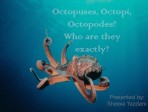 00:07:00
00:07:00
Recent Developments in our Understanding of the Biology of the Octopus Family
Sheeva Yazdani presents on the biology of octopuses (octopi?) and recent developments in our understanding.
More details | Watch now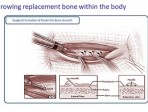 00:58:00
00:58:00
Regenerating organs and other small challenges
A disagreeable side effect of longer life-spans is the failure of one part of the body – the knees, for example – before the body as a whole is ready to surrender. The search for replacement body parts has fueled the highly interdisciplinary fiel....
More details | Watch now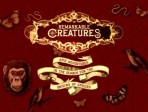 01:07:00
01:07:00
Remarkable Creatures – Epic Adventures in the Search for the Origin of Species
A lecture given as part of the Origins 09 series at Florida State University to celebrate the 150th anniversary of Darwin's 'On the Origin of Species'. Sean B. Carroll is a professor of molecular biology and genetics at the University of Wisconsin-M....
More details | Watch now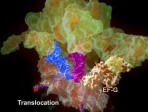 01:02:00
01:02:00
Reprogramming the code of life
The information for synthesizing the molecules that allow organisms to survive and replicate is encoded in genomic DNA. In the cell, DNA is copied to messenger RNA, and triplet codons in the messenger RNA are decoded in the process of translation to ....
More details | Watch now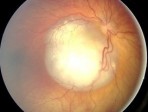 00:05:00
00:05:00
Retinoblastoma
Kyla discusses an overview of the disease, the most common method in which it is diagnosed, as well as the major chemotherapeutics used to treat it.
More details | Watch now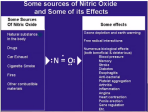 00:39:00
00:39:00
Role of Nitric Oxide and Cyclic GMP in Cell Signaling and Drug Development
Nitric oxide research has grown rapidly with about 150,000 research publications describing its biological effects. It is an important messenger molecule that affects most tissues and biological processes. Many effects of nitric oxide are mediated by....
More details | Watch now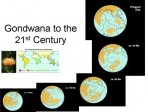 01:00:00
01:00:00
Science not stamp collecting? Botany from 1759 to 2059
Professor Hopper considers the vital role that the study of plant taxonomy and systematics has played in plant science. He considers, in particular, how these fields are transforming to meet the needs of 21st Century science as we address the challen....
More details | Watch now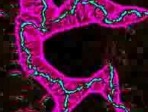 00:58:00
00:58:00
Self-Assembly: Nature’s way to do it
Biology operates at two levels: the large scale which we can see and the underlying microscopic one. The amazing way in which intermolecular forces cause protein arrays to self-assemble, enabling Nature to fabricate the large scale components of livi....
More details | Watch now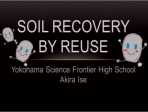 00:06:00
00:06:00
Soil Recovery by Re-use
Aki decribes her experiments in improving soils using various buffering materials.
More details | Watch now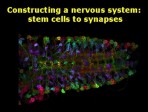 00:58:00
00:58:00
Stem Cells to Synapses
One of the goals of research in neurobiology is the repair and regeneration of neurons after damage to the brain or spinal cord. Before we can understand how to repair the nervous system we must first learn how the nervous system is put together.
More details | Watch now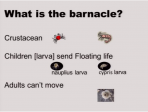 00:06:00
00:06:00
Stream affect barnacles shell direction
An interesting look at how the direction of water flow affects shell growth in barnacles.
More details | Watch now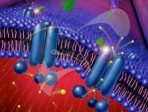 00:29:00
00:29:00
Structural and Mechanistic Studies of Ion Channels
In this interview MacKinnon, Nobel Prizewinner in Chemistry, 2003, discusses Max Perutz and then his own research. He says his course into science was quite sequacious and he really didn't start science until he was about 30 as he had a strong intere....
More details | Watch now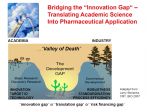 00:33:00
00:33:00
Structural Biology and its Translation into Practice and Business: My Experience
As a student in the early 1960s, I had the privilege to attend winter seminars organized by my mentor, W. Hoppe, and by M. Perutz, which took place in a small guesthouse in the Bavarian-Austrian Alps. The entire community of a handful of protein cry....
More details | Watch now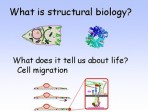 01:03:00
01:03:00
Structure and the living cell
In this lecture Iain Campbell will discuss methods of studying the structure of molecules and cells and how they have advanced in the 350 years since early microscopes gave the first glimpse of single cells. He will show how modern methods are allowi....
More details | Watch now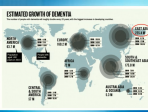 00:33:00
00:33:00
Synthesis and characterization of targeted nano-regulators as potential therapeutic agents for controlling Alzheimer’s disease
In her PhD dissertation lecture, Anila describes the use of nano-particles in the treatment of Alzheimer's Disease.
More details | Watch now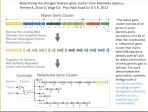 00:34:00
00:34:00
Synthetic Biology for Genetic Engineering in the 21st Century
Synthetic biologists seek to design, build, and test novel biological systems. We have chemically synthesized a bacterial genome (Mycoplsama mycoides, 1078Kb) and brought it to life by transplantation into the cytoplasm of a related species. We are....
More details | Watch now 01:13:00
01:13:00
Targeting the human kinome: cancer drug discovery
This lecture discusses how the discovery of the Philadelphia chromosome provided the first example of a link between cancer and a recurrent genetic abnormality. This chromosomal translocation, which results in activation of the Abl protein kinase, re....
More details | Watch now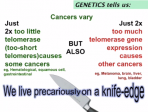 00:35:00
00:35:00
Telomeres: Telling Tails
Telomeres protect chromosome ends and help stabilize the genome. Throughout human life and in aging, telomeres often erode down, eventually causing cells to malfunction or die. The highly regulated cellular enzyme telomerase adds telomeric DNA to tel....
More details | Watch now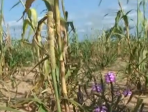 00:09:00
00:09:00
The biology of Striga
One of the major parasites is striga, a weed that sucks the juice and nutrients from cereal crops such as millet, sorghum and maize and causes great yield losses. A single striga plant can produce hundreds of thousands of seeds. The seeds are so tiny....
More details | Watch now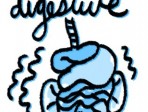 00:11:00
00:11:00
The breakdown of macro-nutrients
Presentation on the breakdown of macro-nutrients. The chemical decomposition of macronutrients, which includes carbohydrates, proteins, and lipids.
More details | Watch now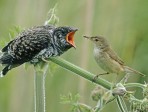 00:06:00
00:06:00
The cuckoo egg mystery
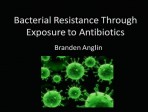 00:06:00
00:06:00
The Development, Treatment and Future of Antibiotic Resistance in Bacteria.
Branden Anglin presents on the development, treatment and possible future of antibiotic resistance in bacteria.
More details | Watch now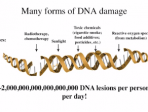 01:16:00
01:16:00
The End of Disease
 00:29:00
00:29:00
The End of Evolution?
Have advances in modern medicine put an end to evolution in humans? If not, how is the human race evolving?
More details | Watch now 01:00:00
01:00:00
The great ideas of biology
Three of the ideas of biology are the gene theory, the theory of evolution by natural selection and the proposal that the cell is the fundamental unit of all life. A fourth idea is that the organization of chemistry within the cell provides explanati....
More details | Watch now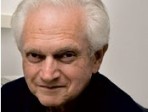 00:39:00
00:39:00
The interpretation of the genetic code and its function in protein synthesis
This interview starts with Nirenberg (Nobel Prize in Medicine, 1968) giving his recollections of his school years. He remembers going down into some limestone caves in Florida at the age of 13-14. It was full of fossilized large animal bones. In fact....
More details | Watch now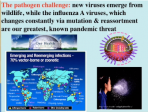 00:29:00
00:29:00
The Killer Defence
Immune surveillance by virus-specific CD8+ cytotoxic T lymphocytes (CTLs), or killer T cells, has long been known to be central to the control of acute infections and some cancers, though the role of CTL memory in the rapid recall of immune protectio....
More details | Watch now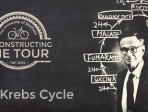 00:03:00
00:03:00
The Krebs Cycle
Matt Johnson explains the Krebs Cycle, its discovery by a University of Sheffield Nobel Prize winner and its role in endurance sports such as cycling.
More details | Watch now 00:07:00
00:07:00
The Mother Fish
Evidence of reproduction by internal fertilization has been discovered in a large group of ancient jawed fish. Embryos discovered within fossils of these animals confirm that live birth in prehistoric times was much more widespread than previously th....
More details | Watch now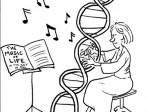 01:12:00
01:12:00
The Music of Life
This event at Sheffield University formed part of a series on Arts-Science Encounters. Stories from The Music of Life related by Denis Noble are interwoven with performances of relevant pieces of classical guitar music by the world-class performer, C....
More details | Watch now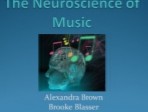 00:09:00
00:09:00
The Neuroscience of Music
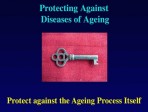 01:00:00
01:00:00
The new biology of ageing
Research into ageing has been rejuvenated by the discovery of mutations in single genes that extend the lifespan of laboratory animals. Some of the signalling pathways involved, particularly the insulin/Igf-like pathway, have effects on lifespan acro....
More details | Watch now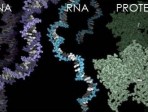 01:00:00
01:00:00
The Origin of Life
In modern organisms, there is a division of labour between two kinds of molecule: DNA, which stores and transmits genetic information, and proteins, which do all the work. They are connected by the 'genetic code', whereby DNA specifies what kinds of ....
More details | Watch now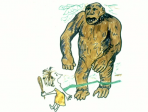 00:30:00
00:30:00
The Origin of Reversible Protein Phosphorylation as a Regulatory Mechanism
Reversible protein phosphorylation can be considered one of the most prevalent mechanism by which eukaryotic cellular events are regulated. It is directly involved in numerous pathological conditions, and bacterial and viral diseases. This process wa....
More details | Watch now 00:31:00
00:31:00
The Origins of Cellular Life
The complexity of modern biological life has long made it difficult to understand how life could emerge spontaneously from the chemistry of the early earth. We are attempting to synthesize simple artificial cells in order to discover plausible pathwa....
More details | Watch now 01:04:00
01:04:00
The origins of flowers
Flowers are such a ubiquitous and familiar part of our modern world that it is easy to take them for granted. But as Darwin recognized, the exquisite details of their structure and appearance have been shaped by evolutionary processes over millions o....
More details | Watch now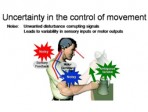 01:08:00
01:08:00
The Puppet Master: How the brain controls the body
The effortless ease with which humans move our arms, our eyes, even our lips when we speak masks the true complexity of the control processes involved. Professor Daniel Wolpert explains how the brain deals with this and can perform optimally in the p....
More details | Watch now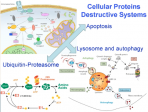 00:32:00
00:32:00
The Revolution of Personalized Medicine: Are We Going to Cure All Diseases and at What Price?
Many important drugs such as penicillin, aspirin, or digitalis, were discovered by serendipity - some by curious researchers who accidentally noted a "strange" phenomenon, and some by isolation of active ingredients form plants known for centuries to....
More details | Watch now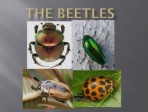 00:06:00
00:06:00
The Role and Species of Beetles Worldwide
Vinnie LaBarbera presents on the role and species of beetles worldwide, including some slides of his own work at the FSU Biological Sciences Department.
More details | Watch now 00:11:00
00:11:00
The Science of Addiction
This presentation deals with common additives in cigarettes, including nicotine, and how these affect your body.
More details | Watch now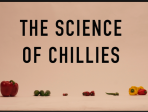 00:04:00
00:04:00
The Science of Chillies
 00:06:00
00:06:00
The Science of Love
A brief look into the physical, biological, chemical and behavioral attributes that humanity shares with other members of the animal kingdom focusing on studies done on Jamaican dancers, Belding's ground squirrels, human MHC and others.
More details | Watch now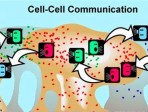 00:03:00
00:03:00
The social life of cells
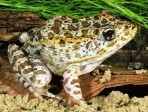 00:48:00
00:48:00
The Wild, Wild World of the Florida Panhandle
D. Bruce Means gives a presentation of the ecological and biological diversity of the region around the Florida panhandle. Dr. Means gave particular attention to the unique climate and environment of the area. He lists the region as one of six biol....
More details | Watch now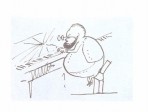 00:58:00
00:58:00
The Zoological World of Edward Lear
Clemency Fisher is Curator of Vertebrate Zoology at National Museums Liverpool. Edward Lear is most famous for his Nonsense Rhymes, such as “The Owl and the Pussycat” and “The Quangle Wangle’s Hat”, but he was also a talented zoological art....
More details | Watch now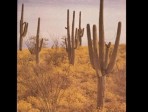 01:02:00
01:02:00
Thinking like a vegetable: how plants decide what to do
Plants monitor a wide range of information from their surrounding environment. They combine information of multiple sorts, and respond in an appropriate way. In plants there is no brain, and the information processing is distributed across the plant ....
More details | Watch now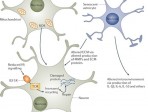 01:06:00
01:06:00
Three score years and then? The new biology of ageing
Ageing is the single greatest challenge facing our society today. Recent breakthroughs have demonstrated that it is possible to combine a long life with the absence of age-related disease. Scientists at the forefront of this research will explain the....
More details | Watch now 00:32:00
00:32:00
Tickling Worms – Surprises from Basic Research
Research, at least my research, has never been linear. I have found that my lab and I often double back on problems after years of inactivity or go off in entirely new directions as dictated by the work and people's interests This lack of direction r....
More details | Watch now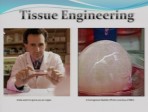 00:08:00
00:08:00
Tissue Engineering
Mariah Michael discusses the burgeoning field of tissue engineering and the research being done at Wake Forest University under Dr. Anthony Atala. Each year, thousands of patients die while waiting for an organ transplant. With this technology, patie....
More details | Watch now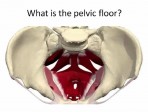 00:14:00
00:14:00
Tissue engineering
The challenge of tissue-engineering - a repair material for use in pelvic floor surgery
More details | Watch now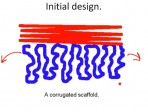 00:13:00
00:13:00
Tisue Engineering of the Cleft Palate
Overview of research that seeks to find a better intervention to correct a cleft palate
More details | Watch now